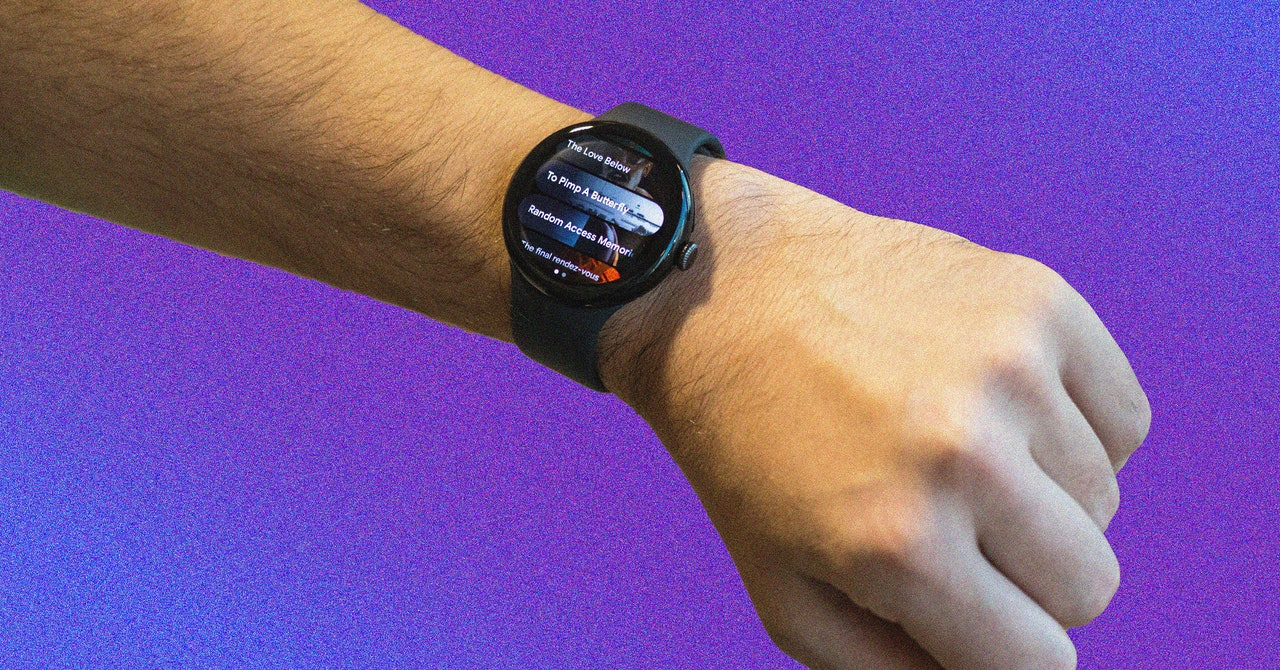If you break the Google Pixel Watchâwhether the first-generation smartwatch from 2022 or the latest model launched earlier this monthâthere is no way to repair it through official channels. Instead, if you successfully make a warranty claim, Google will send you a replacement unit instead of repairing your model. This lack of repairability highlights the company’s inexperience in the smartwatch space. You can take a broken Apple Watch to Apple to repair cracked glass or replace the battery, and the same is true for Samsung’s Galaxy Watches.
There’s some good news though. At a Climate Week NYC panel focused on repairable technologyâhosted by Back Market and moderated by One5câNicole Azores, a manager of Government Affairs and Public Policy at Google, says the company is thinking through the design of the Pixel Watch to make it more repairable.
âWatches and wearables are still fairly nascent and we are thinking through how to make this repairable,” Azores said on the panel. “Weâre thinking about repairability on a broader scale, not just on phones and tablets, and we want to make sure that all of our products eventually become repairable. I think watches being so new as a category, there are some design elements that need to be considered on how we make them repairable.”
When Can You Fix It?
Azores did not provide any additional information, including a timeline. Consumer tech products typically have a two- to three-year development time. But it’s unclear whether this more repairable framework will show up in the Pixel Watch 4 next year, or even later than that. Google has stuck with the same design for its Pixel Watch over the last three generations, though the Pixel Watch 3 launched in two sizes for the first time.
This is the first time the company has publicly commented on the irreparability of its smartwatch. Until now, Google representatives have typically said the company has nothing to share when repairability concerns are brought up.
The Pixel Watch is a latecomer in the world of smartwatches, but the software it runsâWear OSâhas been around for a decade (formerly called Android Wear). Google managed the operating system, as manufacturers like Fossil and LG made the smartwatches themselves. That changed in 2022, when Google released its very own smartwatch, following its effort to jumpstart the waning platform alongside Samsung and Fitbit.
Google reportedly captured 8 percent of the wearable band market share in the fourth quarter of 2022, the timeframe of when the first Pixel Watch launched. Research group Canalys says the company shipped 880,000 Pixel Watches in that period (the rest are Fitbit devices).
Just the Starting Point
Lack of repairability will doom many of these watches as electronic waste to the landfill, which according to a recent UN climate report, has already reached a crisis point. In 2022, there were around 137 billion pounds of e-waste, and only less than a quarter was recycled. By 2030, e-waste is expected to grow by 33 percent, outpacing the recycling rate.
There are ongoing efforts to enforce repairability in tech. Last year, the European Union passed regulations requiring smartphones and tablets to have longer-lasting batteries or easier methods for users to replace batteries using common tools beginning in June 2025. While it doesn’t have to comply with this legislation, Apple’s new iPhone 16 debuted a new adhesive that makes the battery inside easier to remove,
Whether it’s in the Pixel Watch 4 or Pixel Watch 5, this design change is a win for consumers. Now Google needs to focus on improving the repairability of Fitbit’s wearables. Despite the prevalence of its trackers, the company doesn’t have any repair centers to send your device in for fixes.

